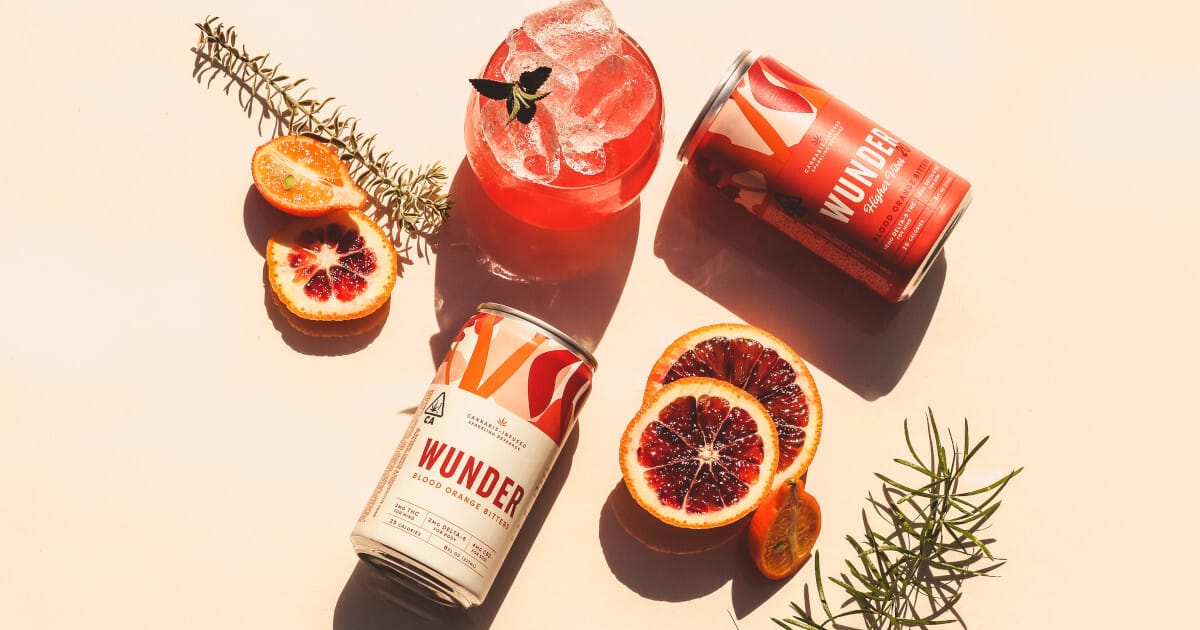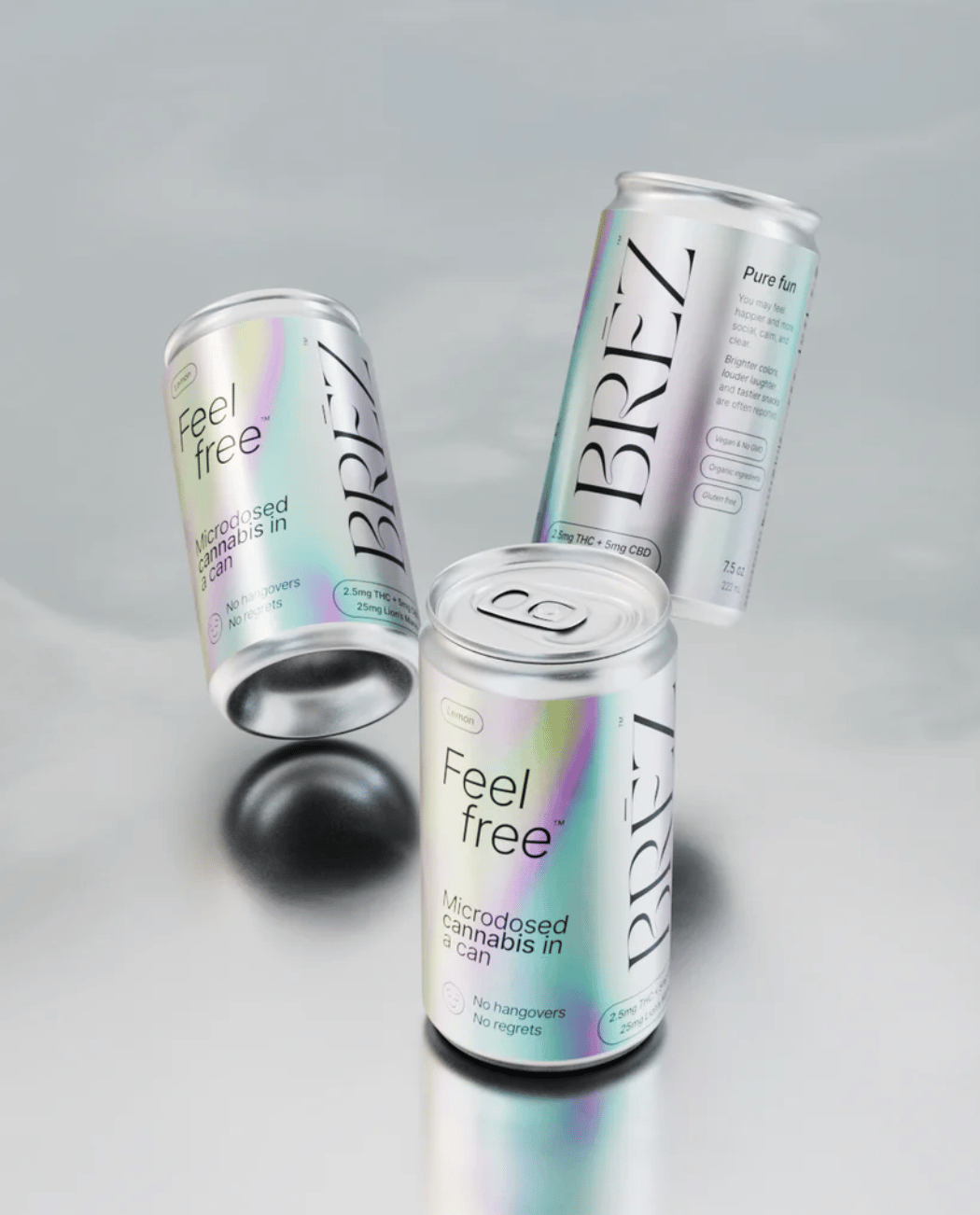- Hyper
- Posts
- Sobriety as a service
Sobriety as a service

We’re doing things a little differently this week. We are both sharing essays from our perspectives on the state of the non-alcoholic drink market. Clayton’s up first, Oren’s up second, and we cover everything from stigmas around drinking, boozeless bottle shops, cannabis beverages, the market opportunities, and a few other bits.
We hope you enjoy!
Growing up…
I spent summers at my friend’s house down the street. We hung out a lot, and we’d catch some reprieve in the dog days of Florida heat by eating snacks and sipping Capri Suns on his back porch.
I’ll always remember reaching for the juice boxes in his fridge and seeing beer to the side (my parents didn’t drink growing up, so alcohol was foreign to me).
The brand was O’douls. That logo is forever imprinted in my brain, like some Irish beer brand, which I later in life discovered was… non-alcoholic beer.

Looking back, it got me thinking: how wild it is that in 15 years, we really went from O’douls being the only alternative for those practicing sobriety to this very moment, where there appears to be a drink alternative for any type of customer, city, and scenario.
Non-alcoholic IPAs. Craft, of course.
Canned aperitifs.
Boozeless bourbon.
Elixirs.
Hibiscus infused sparkling waters with THC.
Mainly, we just love seeing what’s out there now, so we thought it would be cool to survey the space in general and how we’re seeing it unfold from multiple angles.
Why we crave it in the first place
How the resources that are available right now are helping reframe the bigger conversation around sober drinking.
How brands are activating products, services, and experiences for sober drinkers
Let’s dive in!
Getting sober and demystifying the stigma around it
In January 2022, nearly 10% of the United Kingdom (some near-eight million strong) alone took the month off drinking. That’s a 22% increase from the previous year.
“Over the past decade, women (specifically) have been drinking more than ever… This was exacerbated during the pandemic, where we saw individuals drinking 20% more than pre-pandemic,” Amanda White says, a licensed therapist, and Author of Not Drinking Tonight unpacks some of the cultural and sociological reasons why we’re drinking less these days.
And the stigma around dropping booze doesn’t make things easier for us to try it. Societally, there’s a subtle judgment that choosing not to drink is directly correlated with the fact that you have a drinking problem, or worse, you’re an alcoholic.
But, that narrative is gradually changing.
And thanks to celebrities like Chrissy Teigen and Bella Hadid, who have candidly begun questioning their relationship with alcohol publicly and exploring sobriety, there’s a refreshing openness towards those who want the same.
A while back, Kin Euphorics, an adaptogen beverage brand brought Bella on as a co-founder and partner for the business.

Celebrities have also launched their own brands too, like Katy Perry did with De Soi, which is French for “pleasure with restraint”. It’s also a canned aperitif drink filled with all sorts of buzzy good stuff. In an interview with People mag, she explained more behind the drink inspiration.
"I love herbs. I love alchemy. I love wellness. And I love the feeling of some of these different adaptogens that are actually in the drinks. Some of these herbs, and ingredients will help brighten your mood or help ease you into the evening."
She’s not strictly sober, though. For Perry it’s about balance.
"On a weekday, having a couple [of alcoholic drinks] will take me out of the presence game for the next day or two. So I like to have a bit of self-control on the weekdays and then have dinners with friends and stuff on weekends or when I'm not working, et cetera… Really it's about balance."

Or Blake Lively’s Betty Buzz, a sparkling drink mixer meant to be sipped on its own. Which is funny, since Lively’s married to Ryan Reynolds, who’s crushing it right now with his brand, Aviator Gin.
"For me, I don't drink because I don't like the effects of alcohol, but I like being a part of it. I like being social, I like people coming together," Lively explained in an interview with InStyle.

This seems to be one way that we can dust off the stigma around sobriety, by bringing public figures into the limelight who can speak publicly about their own stories and challenges, demystifying the shame and guilt surrounding it.
Sober-as-a-Service
Beyond the brands, we’re also witnessing a rise in resources and experiences for the sober curious.
Listen Bar is one such startup. They’re dedicated to making it easier to enjoy sober drinking.
The Listen Bar hosts live events, offers mocktail-making classes for you and your friends, and even sells a few mocktail recipe books if you want something to put on your coffee table.
They also curate dope playlists too. I like the approach LB takes because it reframes the point of drinking. It’s not about the buzz or the high.
It’s about friendship and community.
On the newsletter front, there are other great content resources like Good Drinks, a cocktail creator on Substack (that just stopped writing), one that focuses on sober drinking.
And of course, there’s the infamous Snaxshot, a cult-followed community and newsletter that trends and shifts in the CPG and Food & Bev space.
Founder Andrea Hernandez has been writing about the no-low drinking movement for a few years and has called trends and spotted brands far longer and better than anything we could share here.
The rise of sober bars and booze(less) bottle shops
Bored of drinking at home?
Coastal cities already have sober bars that literally feel like regular bars, except… they’re sober. Check out the Getaway in Brooklyn.

The vibes are exquisite. Feels like a tiki-meets-Havana concept. Expect more of these to pop up in niche neighborhoods in first and second-tier cities.
Speaking of which, southern cities like Atlanta are getting their first no-low shops too. Zilch Market & Bar is a pop-up market that runs events during the week at different locations.
Sipple in Houston is another brick-and-mortar that offers a wide range of non-alc options.

Zilch Atlanta
In London, fashion designer Anya Hindmarch once collaborated with Dry Drinker (a local booze-free store) to create Off License, a month-long popup shop stocking everything from wine and beer to ciders and spirits.
Hell, there are even traveling bars now! Sans Bar is a mobile concept that goes on tour in cities around the U.S.
Don’t live in Don’t live in any of these cities? There are also online marketplaces like No & Low, stocking all the best brands in-class.
-Clayton

Why I stopped drinking

Seven years ago, I decided to stop drinking alcohol.
It was primarily about health and being more present with my newborn son, but impacted my life far beyond that. I became healthier and more effective, and it was a gateway to an overall far healthier lifestyle.
Now, today, I don't feel the need to push the lifestyle or say I'd never have a drink; it's more just a simple daily choice. I have become far more conscious of beverages overall and of the social and personal queues that revolve around the rituals of liquor.
First, there is the anchor of social replacement. I was still going out quite a lot at the time I stopped, and I could never have had success reducing alcohol if most bars in Austin, where I lived at the time, didn't carry Rambler or Waterloo sparkling water in cans, which look like a beer in the dark.
To this day, my least favorite part about this lifestyle choice is someone asking, "you're not drinking?" and requiring some kind of explanation for the 100th time. With LA mocktail culture and a wealth of options at Supermarkets, restaurants, and bars, I am thankful for a selection and will gladly purchase around it—this is a market dynamic that keeps a lot of these drinks alive.
But let's be clear, the De Soi's, Ghia's and Kin's of the world are... essentially juice? An Olipop is kind of a superior experience to any of them unless you're like expertly pairing your Ghia flavor to your meals flavorings... These markets are ruthlessly niche, and if I see Eritryol or Monk Fruit in a flavor... I'm already over it.
I do not think there is a further market for more non-alcoholic drinks that aren't simply... a drink.
Such Great Heights

Then, we come to cannabis. Cannabis beverages are... amazing? Everything we've been promised in this new era of modern weed. Low dose, great buzz, no hangover, often low sugar, and they make most people feel, incredible?
Add on to this that with the way hemp is regulated (long story) they're the easiest form factor for actual, deliverable cannabis through most of the US beyond distribution in tradition dispensaries. Most of you reading this in the US can order cannabis beverages to your door online right now.
The economics of their sale and transport are kind of a nightmare to the extent I could never actually recommend this business as one to get in, but as a consumer experience? Hard to beat.
My favorites- Wunder, Cann, and now BREZ

So you wanna start a beverage brand?
Is there still room on the crowded Erewhon and specialty grocer shelves? Yes, and here's where I’d start.
To succeed, you need to be ULTRA LEAN. I signed on as an advisor to exactly one drink brand of the likely a dozen whom I've talked with about advisement or investment.
That brand does single-digit millions, and there is one employee... the founder. He has a team of small contractors, pays himself a reasonable salary, and that's it.
This is really the ONLY way to do a company like this without going into debt, and I would not go into debt to build a CPG beverage brand. Cash flow positive or nothing.
1-3 people and a light-weight contractor team is your ideal size. DTC is primarily a waste of time. Storytelling via social in a way that highlights you in a distributor catalog is a must.

Spaces to play in
Alternative beverages that don't have monk fruit or eritryol, and maybe max 3g of sugar, but still taste decent. Lots of brands on shelves with the above and consumers do not like those tastes or want those ingredients in their bodies over time, and there will be a shift away by category you can take advantage of.
Tonics/shots with powerful ingredients - designed to be drank or mixed. Combinations around function whether relaxation, energy, aphrodisiacs, health—grab ideas via content from Nootbro and begin formulating
I hate it personally, but there is still Kava-related room to grow
Hemp-derived cannabis is going to go from a primary ingredient to just another feature in core categories; there is still lots of room to grow here. 2-10mg cannabis cold brews are going to be superfoods.
Clayton + Oren ❤️ you